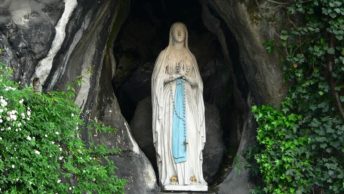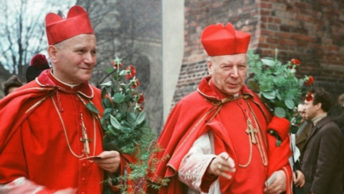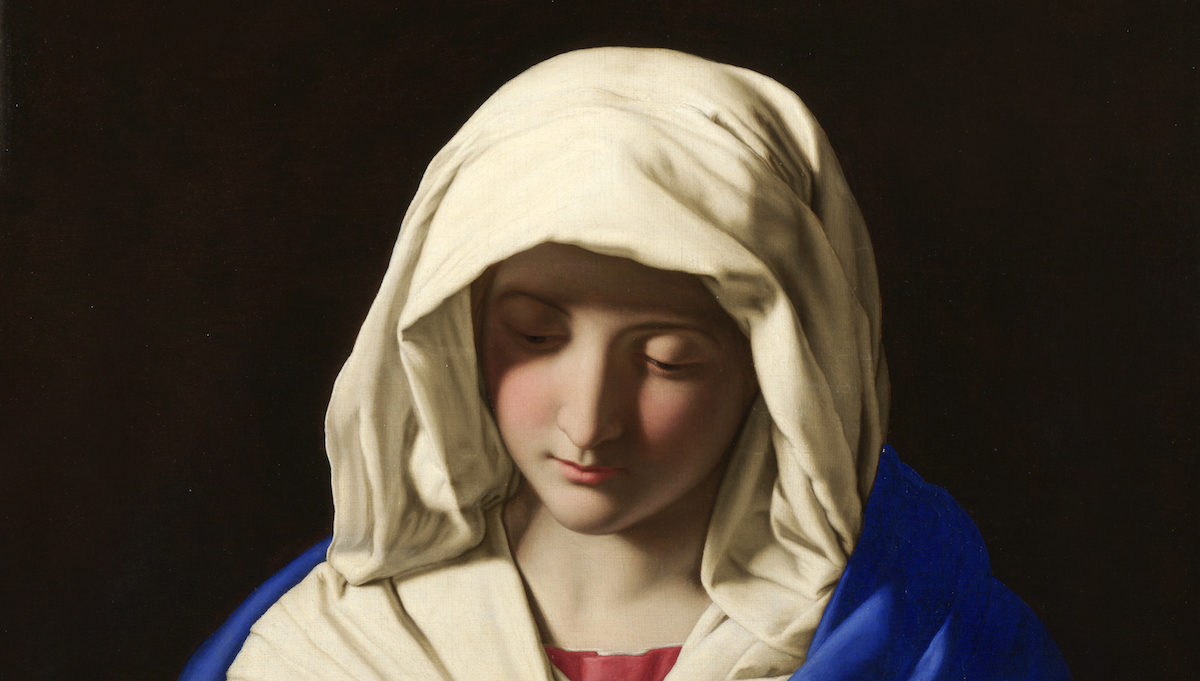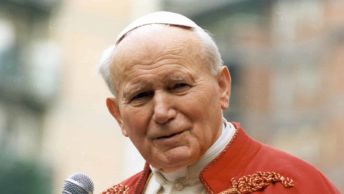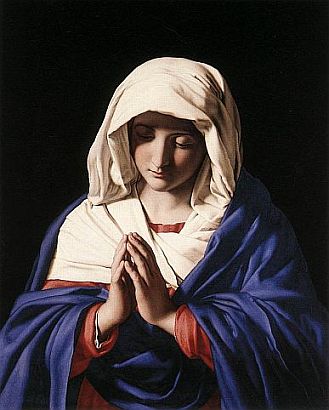
In the Book of Genesis (Genesis 11:1-9) we read that after The Flood which Noah and his family had survived, the people living near Babylon built a tower in order the link earthlings with heaven. History gave it the name: The Tower of Babel.
In other times and cultures humans have built temples of bricks and mortar or of stones in which to experience the presence of God. God, on the other hand, has chosen to have us experience His presence on His terms, not ours. He destroyed the Tower of Babel. The lesson He was teaching us is that the way to God is not constructed according to human specifications, according to human plans and purposes. The way to God will be on His terms, not ours.
In Old Testament times King David decided to build a magnificent temple in order to house the presence of God for the Israelites. In the second book of Samuel (2 Samuel 7:1-17) we read:
Now when the king lived in his house and the Lord had given him rest from all his surrounding enemies, the king said to Nathan the prophet, “See now, I dwell in a house of cedar, but the ark of God dwells in a tent.” But the word of the Lord came to Nathan, “Go and tell my servant David, ‘Thus says the Lord: Would you build me a house to dwell in?’
The Prophet Nathan thereupon goes on to inform King David that God will build His own house in His own way.
That house turned out to be a house not of brick and mortar but a house that is a people, a temple built of living stones. Its cornerstone would be God’s Anointed One, God’s Christ.
God has come to us in a way that before Christ was unimaginable. He chose to come to us in our own human flesh and blood. He therefore chose Mary in which He would receive His humanity; He chose to become enfleshed, to be incarnated, in the body of the Virgin Mary.
What is to be borne in mind is the fact that God comes to us in our littleness, not in grandiosity, not in great power and might, not as a great king, but as a human baby. He comes to us in powerlessness so that we who are powerless might love Him without fear. He does not want us to come to Him in fear and trembling, He wants us to come to Him as the shepherds did, as the mighty Magi did. God’s ways are the opposite of our ways. In order to journey to Him we have to set aside all of our presumptions. His ways are not our ways.
God’s sign is simplicity. God’s sign is the baby. God’s sign is that He makes himself small for us. This is how He seeks to capture our hearts. He does not come to us with power, majestic in splendor and with all of the trappings of overpowering greatness. He comes as a baby – defenseless and in need of our help. He does not want to overwhelm us with fear of His strength. He takes away our fear of his omnipotent greatness. He simply asks for our love as does a little child. He wants nothing other from us other than our love and in the simplicity of that love we learn to enter into His feelings, His thoughts, and His will. We learn to live with Him and to practice with Him that humility of setting aside of our egos. That belongs to the very essence of love. God made Himself small so that we could understand Him, welcome Him, and love Him.
When we look upon a mother holding a baby in her lap and nurturing it we see something that we do not otherwise see. In all of its simplicity we see the beauty of unconditional love, love without all of the complications we humans might otherwise attach to it.
God comes to us in smallness, as a baby being loved by its mother. This is so that we might see the way God loves us. He loves us with a mother’s love, a love that we can understand in its simplicity, a love that we need not fear, a love that we can all experience.
While we admire Mary, revere her, and exalt her greatness, we must not subconsciously regard her as something other than human. What is of supreme importance in God’s plan is that He would take on our human flesh in the womb of a very human mother. If Mary were not a human being like the rest of us, God’s whole plan would be changed into something by which He would come to us externally rather than internally. Jesus Christ would not be both truly God and truly man at the same time. For our redemption to be complete God’s self-gift to us, His self-expression to us, had to be in both Christ’s divinity and His humanity at the same time.
God did not come to us as a sort of alien and extraterrestrial being. Through Mary he came to us in our earthly human nature. This is why she is of such great importance in the great scheme of things. Being a human mother she is at the same time the Mother of God, the mother of the human child, the mother of God’s Word made flesh born to overcome the chasm between our sinful humanity and God’s desire for us to be one with Him.
As we begin a new year we should reflect on what it now means to be human. Has not being human taken on a new level of being, a new level of importance, a level of holiness in which Gad has chosen to come to us in love? This should cause us to examine the way we treat other human beings. It should cause us to judge how governments treat human beings. It should cause us to see in a new light what violence does to children, especially poor children, children who are stripped of their rights, and children who are abused. How they are treated reflects on how we regard God’s coming to us as a little child, the Son of Mary, the child born to us according to all of the prophecies on the Old Testament, the child who is the expression of God and of the love God has for you and for me.
Today we revere Mary as the Mother of God, and today we revere Mary as our Mother. Today we give special honor to the way God chose to come to us, to redeem us, and to love us not in overpowering awesomeness but in the simplicity of a child being held and nourished on Mary’s lap. It is not we who have built a magnificent tower in order to reach God in heaven; it is He who comes to us in the simplicity of a mother’s love in order that we might love God as He wants us to love Him. This is why Jesus taught us to pray to God as our Abba, our Papa who art in heaven.



